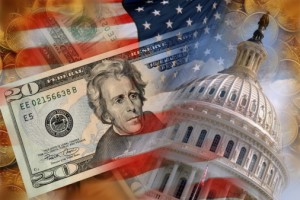Heads-up Congress: Following the money just got a little easier

By William Patrick | Florida Watchdog
TALLAHASSEE, Fla. — Following the money in politics just got a little easier.
OPEN SECRETS: Access to personal financial disclosures for members of Congress have never been more timely.
A new government transparency tool, launched Wednesday by OpenSecrets.org, provides some of the most up-to-date financial information available with respect to members of Congress.
Thanks to a provision in the Stock Act of 2012, members are now required to disclose whether they bought, sold or exchanged any stocks, securities or bonds within 30-45 days of the transaction date.
“It’s a major change from the previous disclosure regime,” Sarah Bryner, research director for the nonpartisan website, told Watchdog.org.
According to Bryner, the data has only recently been made able available. Researchers have compiled transactions worth over $1,000 dating back two years for U.S. House members and will add Senate data by year-end.
It’s important because it allows citizens to keep a closer eye on conflicts of interests, she said.
At the very least, inquiring minds can see if an elected official’s rhetoric lines up with his or her wallet.
A quick search, for example, shows U.S. Rep. Alan Grayson, D-Fla., purchased $250,000 to $500,000 in stock in a Chinese state-owned telecommunications company in March. The progressive Democrat also made significant trades in large foreign oil and mining companies this year.
U.S. Rep. Vern Buchanan, R-Fla., a conservative businessman, invested up to $100,000 in a Chicago-area school bonds in June. His previous two transactions involved government housing and education bonds.
While it’s perfectly legal for members of Congress to invest in financial markets, one concern is that investments could be made with nonpublic information arising out of the lawmaking process — tantamount, in some ways, to Wall Street insider trading.
Peter Schweizer, a Tallahassee-based investigative journalist, exposed the bipartisan practice that eventually led to the Stock Act. His book, “Throw them All Out,” documents numerous examples, including profitable deals involving former House speakers Nancy Pelosi and Dennis Hastert.
The user-friendly database is helpful for anyone who might want to look at an initial public offering and see if a member bought stock around the launch date and then see if they sat on a committee that could have affected the stock, Bryner said.
“In the past we would only know about transactions a year after they happened. This way the public is able to know much more quickly if a member of Congress is buying or selling stock or shifting around their money,” she said.
OpenSecrets.org is an award-winning website created by the Center for Responsive Politics.







